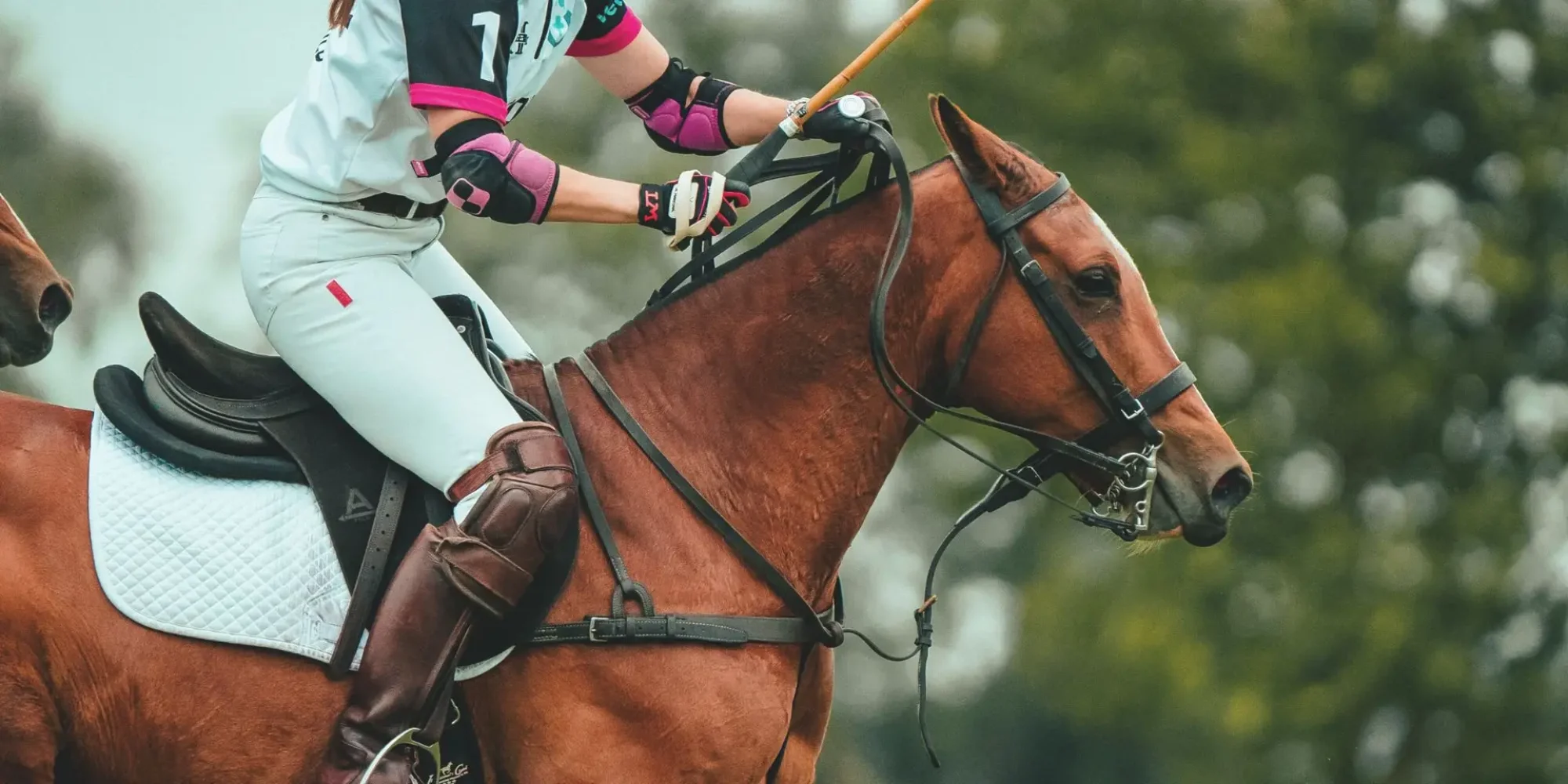
Polo
A 2,000 year old equestrian sport
Polo is a team sport played on horseback in which two teams of four riders each use long-handled mallets to hit a small ball through goal posts.
The objective of the game is to score more goals than the opposing team. The game is played on a large grass field that can be up to 300 yards long and 160 yards wide. The gametime is divided into four equal-sized quarters, or “chukkers,” each lasting 7.5 minutes.
Everything You Need to Know About Polo
The History of Polo
Polo is believed to have originated in ancient Persia (modern-day Iran) over 2,000 years ago. The sport was played by nomadic tribes and was used as a training exercise for cavalry units. From Persia, polo spread to the neighbouring regions of Central Asia and India, where it became a popular pastime among the ruling classes and was played on a large scale.
The modern version of polo, which is played worldwide, has its roots in the British colonial empire in India. British soldiers and officials, who were introduced to the sport during their service in India, brought the game back to England in the mid-19th century, where it quickly became popular among the British aristocracy.
Since then, polo has spread to other countries and continents and is played in many countries around the world, including the United States, Argentina, Chile, Australia, and the United Kingdom. The sport is governed by the Federation of International Polo, which regulates the rules and organises international tournaments.
How Polo is played
The rules of polo are designed to ensure the safety of the players and horses while providing an exciting and competitive game. Some of the key rules include:
Number of players: Each team consists of four players, with each player assigned a specific position on the field (No. 1, No. 2, No. 3, and No. 4).
Length of game: A standard polo game is divided into periods called “chukkers,” which last 7.5 minutes each. Most games are played over four or six chukkers, although some high-goal games can be played over eight chukkers.
Equipment: Players must wear protective gear, including a helmet, knee guards, and elbow pads. Horses must also wear protective gear, including leg wraps, which help to prevent injury during play.
Field of play: Polo is played on a grass field that can be up to 300 yards long and 160 yards wide. The field is divided into four equal-sized quarters, and goals are set up at each end of the field.
Scoring: Goals are scored by hitting the ball between the goal posts with the mallet. The team with the most goals at the end of the game is declared the winner.
Fouls: There are several types of fouls in polo, including dangerous riding, crossing the line of the ball, and hitting the ball out of bounds. A foul results in a free hit for the opposing team.
Substitutions: Substitutions can be made between chukkers, and there is no limit to the number of substitutions that can be made during a game.
These are some of the basic rules of polo but there are many other specific rules and regulations that govern the sport. The rules are designed to provide a fair and competitive game for all participants.
What Are Polo Ponies?
Horses used in polo are typically referred to as “polo ponies”, although they are full-sized horses. These horses are bred or trained specifically for the sport and are characterized by their athleticism, speed, and manoeuvrability.
The most common breeds used in polo include:
Thoroughbreds / Thoroughbred-Crosses: They are known for their speed and agility, making them well-suited for polo. They are also strong and brave, which is important in the fast-paced and sometimes physically demanding sport.
Argentine Criollo: This breed is native to Argentina and is known for its speed, agility, and bravery.
American Quarter Horses / QH-Crosses: These horses are known for their speed, agility, and quick acceleration, making them well-suited for polo.
The most important characteristics of a polo pony are its athleticism, speed, and bravery, rather than its breed. Many successful polo ponies are of mixed heritage.
Polo x Happie Horse App
You ride polo? Then create your polo-based training plan in the app. You can also record your polo training with our gait analysis to see how fast you were and what distance you covered.
Test the premium version of the Happie Horse App for 7 days for free!

